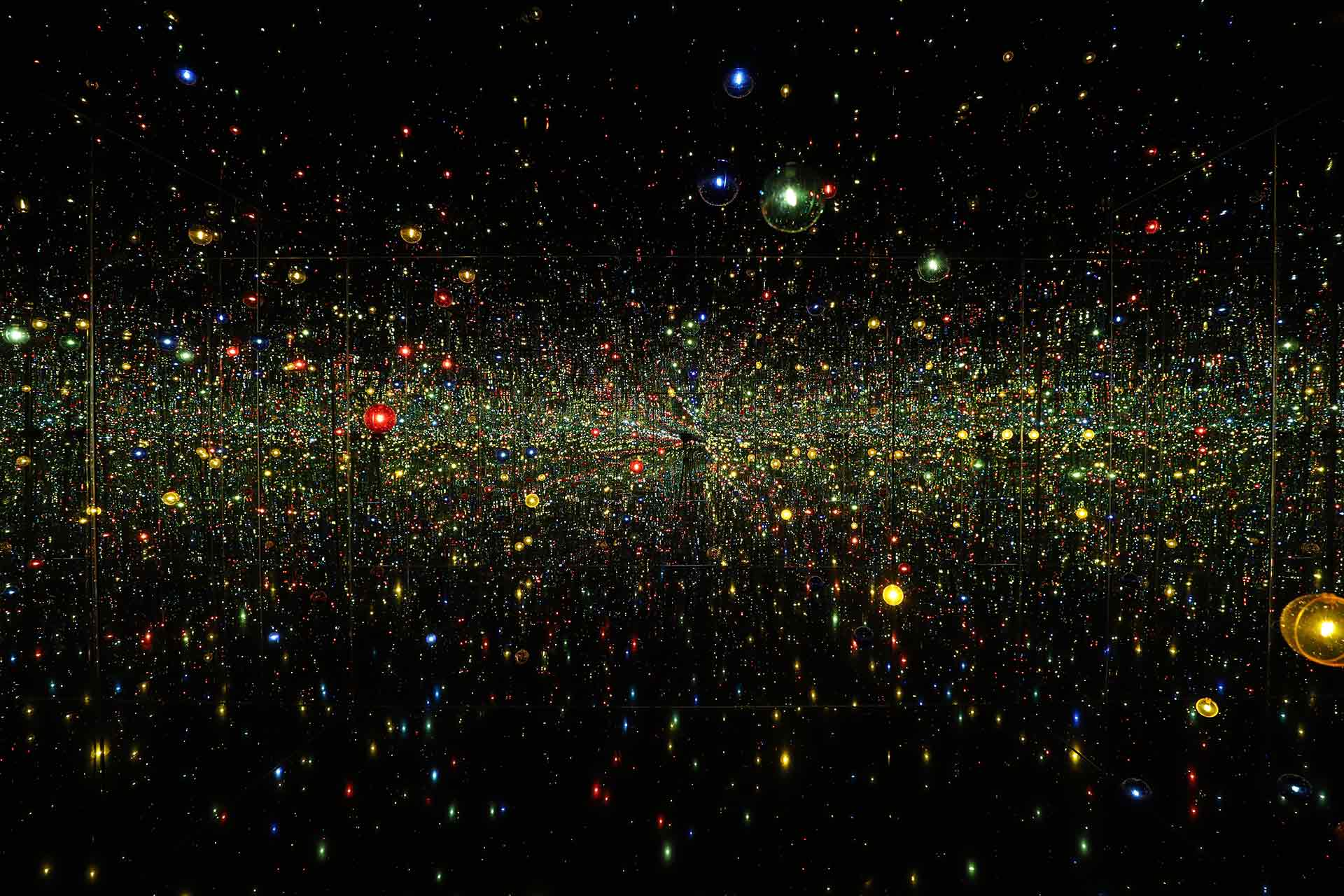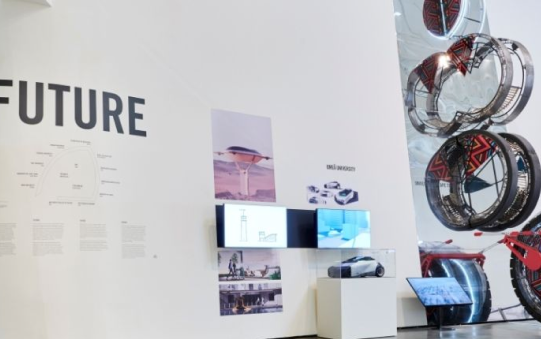
CLIMATE NEUTRALITY 2030
The Guggenheim Museum Bilbao has been at the forefront of environmental responsibility for the past twenty years. In 2004, it was certified for ISO 14001. Since then, sustainability has been a key concern in the Museum’s Strategic Plan. In 2021, the Museum set out an Environmental Sustainability Strategic Framework in line with the Sustainable Development Goals adopted in the United Nations General Assembly resolution known as the 2030 Agenda. This laid the foundation for the development of the first Sustainability Action Plan in 2022.

Sustainability is a core focus across all areas of the Museum’s work. Each year, the organisation develops an ambitious Sustainability Action Plan that involves every department, from those dedicated to energy efficiency, exhibition management, public programmes and educational activities, to those linked to visitors, the Shop and the Restaurant. The Plan promotes improvements in energy efficiency and introduces initiatives aimed at minimising environmental impact, with the ultimate goal of achieving climate neutrality by 2030.
The driving force behind these changes is Gu-Zero, a group whose members come from different Museum areas, established in 2021 with the aim of sharing information, raising awareness, and engaging workers, suppliers, and social actors while identifying and implementing the initiatives included in the Sustainability Action Plan.
News from a Sustainable Museum
- The Guggenheim Museum Bilbao receives the Getty Art and Sustainability Fellows program
Over the next six years, the Museum will have three qualified professionals to support and boost its environmental sustainability initiatives thanks to the Getty Global Art and Sustainability Fellows program.
To access Getty information through this link
This project is made possible with support from Getty through its The Getty Global Art and Sustainability Fellows program

-
The Guggenheim Museum Bilbao Joins the Culture for the Planet Platform as a Founding Member
This new international community aims to accelerate the transition toward sustainability in the arts and culture sector. -
An AI-powered platform designed to eliminate digital waste wins the competition for climate change solutions
HomeForOurPlanet is an initiative led by IKEA and the Guggenheim Museum Bilbao, aiming to mobilize young people in Spain to generate innovative ideas on how we can mitigate or adapt to climate change from within the home. - The Guggenheim Museum Bilbao installs on its rooftops 300 solar panels, perfectly integrated into the architecture. Project financed by nextgenerationEU European funds. In addition, the Museum has presented the 2024-2025 environmental sustainability plan, which includes the commitment to work towards carbon neutrality by 2030.
- Gallery Climate Coalition (GCC) Active Membership Renewal. The Guggenheim Museum Bilbao has got its Active Membership renewed at Gallery Climate Coalition (GCC), an initiative giving recognition to GCC members who can demonstrate that they have taken action to reduce their environmental impact. We were the first museum in Spain to join the Coalition in 2023, alongside some of the world’s leading art museums and galleries, such as New York’s MoMA and London’s Tate.
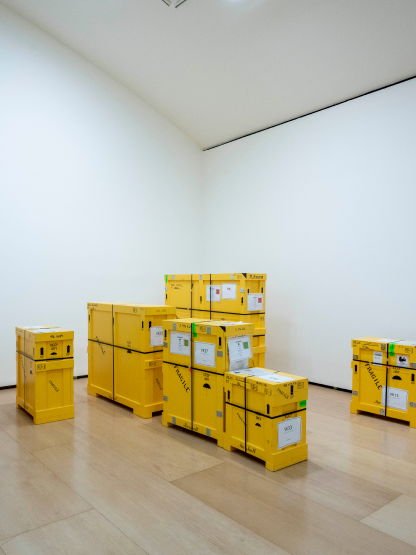
MEASURING THE CARBON FOOTPRINT
The Guggenheim Museum Bilbao is one of the first museums globally to measure its carbon footprint including indirect emissions. Since 2019, the Museum has calculated the CO 2 emissions generated by the transport of works of art and associated staff mobility. Moreover, since 2021, the emissions produced by artwork packing and exhibition production were included. Based on these data, the Museum was able to know its impact on the environment and set the goals of its Sustainability Action Plan accordingly.
Guggenheim Museum Bilbao Greenhouse Gas (GHG) 2024 Inventory Report
Guggenheim Museum Bilbao Greenhouse Gas (GHG) 2023 Inventory Report
Guggenheim Museum Bilbao Greenhouse Gas (GHG) 2022 Inventory Report
Guggenheim Museum Bilbao Greenhouse Gas (GHG) 2021 Inventory Report
ENERGY EFFICIENCY AND ENVIRONMENTAL POLCY
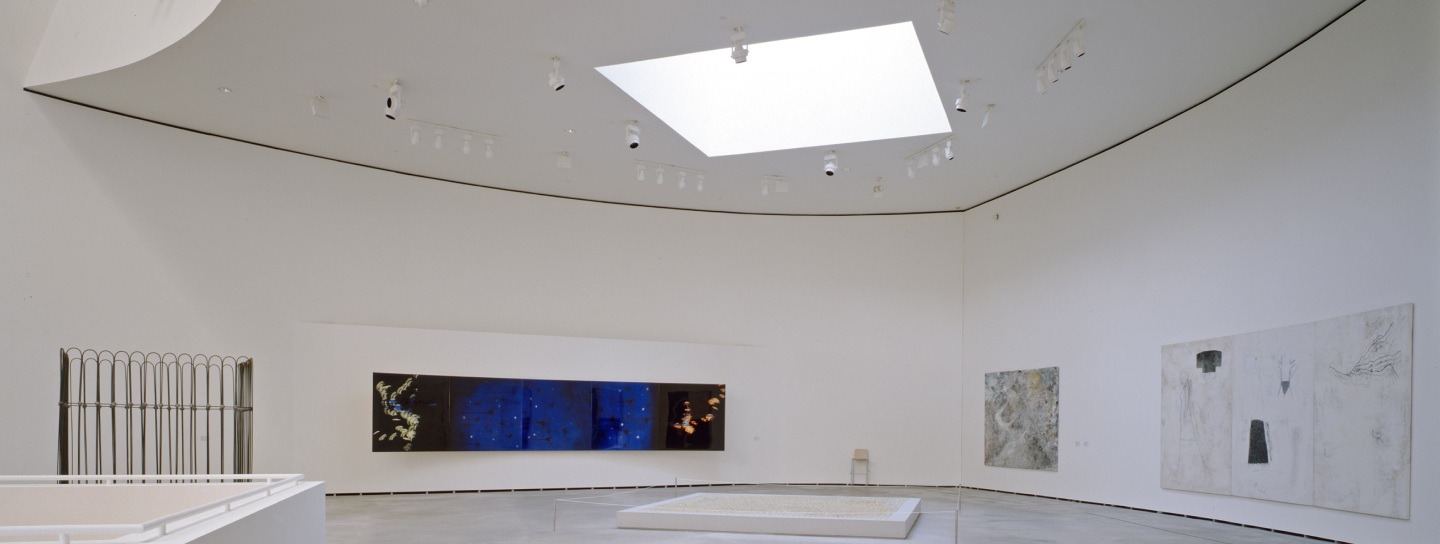
The annual Sustainability Action Plan includes various energy-saving measures through optimised facilities and technological upgrades. The organisation also actively works to reduce consumption, recycle materials and support circular economy projects:
- More flexible temperature and humidity controls:. The Museum is a global leader in this trend in art conservation. Following the recommendations of ICOM, IIC, and the Bizot Group, since October 2022, the Museum has applied controls adapted to the exterior weather conditions. This results in lower energy consumption for air conditioning.

- Installation of photovoltaic panels. The installation of 300 solar panels on the Museum’s rooftops has led to a 5% reduction in electricity consumption and now powers the lighting for all exhibition galleries.
Renewable Electricity
Since June 2024, 100% of the Museum’s electricity has come from sustainable sources, helping - Dynamic lighting: In 2022, the Museum set out to reopen the building’s skylights and go back to the original gallery layout, combining natural light and LED lighting automatically.
- Installation of electric vehicle charging stations in the vicinity of the Museum.
- Reduction of new packing materials for art transportation, replaced by rental options.
- Virtual monitoring of the works of art traveling from one institution to another. The use of technology contributes to reducing mobility.
- Reuse of temporary walls in exhibitions staged in the same galleries.
- Sharing of museum staging elements with local institutions.
- Sale of a higher number of sustainable goods in the Museum Store.
- Air purification in outdoor advertising campaigns: In 2021, the Museum implemented a special treatment applied to its advertising campaigns across the city. The treatment is currently being used in all outdoor advertising supports: pole banners, wallscapes, and billboards.
- Use of locally-sourced and in-season ingredients in its gastronomic spaces.
EXHIBITIONS AND EDUCATION
The Museum’s artistic programme, educational activities and public events offer many opportunities to reflect on environmental issues and raise ecological awareness. Workshops, talks, creative sessions, expert discussions and dedicated courses explore different aspects of the climate crisis.
Since its opening, the Guggenheim Museum Bilbao has hosted numerous exhibitions that reflect on environmental sustainability, featuring artists such as Allora & Calzadilla, Bill Viola, Diana Thater, Fiona Tan, Olafur Eliasson, Pierre Huyghe, Monira Al Qadiri, The Otolith Group and Marine Hugonnier.
The Arts of the Earth exhibition, opening in December 2025 with the support of Iberdrola, will present works by artists from multiple generations and diverse cultures, offering reflections on the health of our planet and, in particular, the survival of the soil.
FORUMS
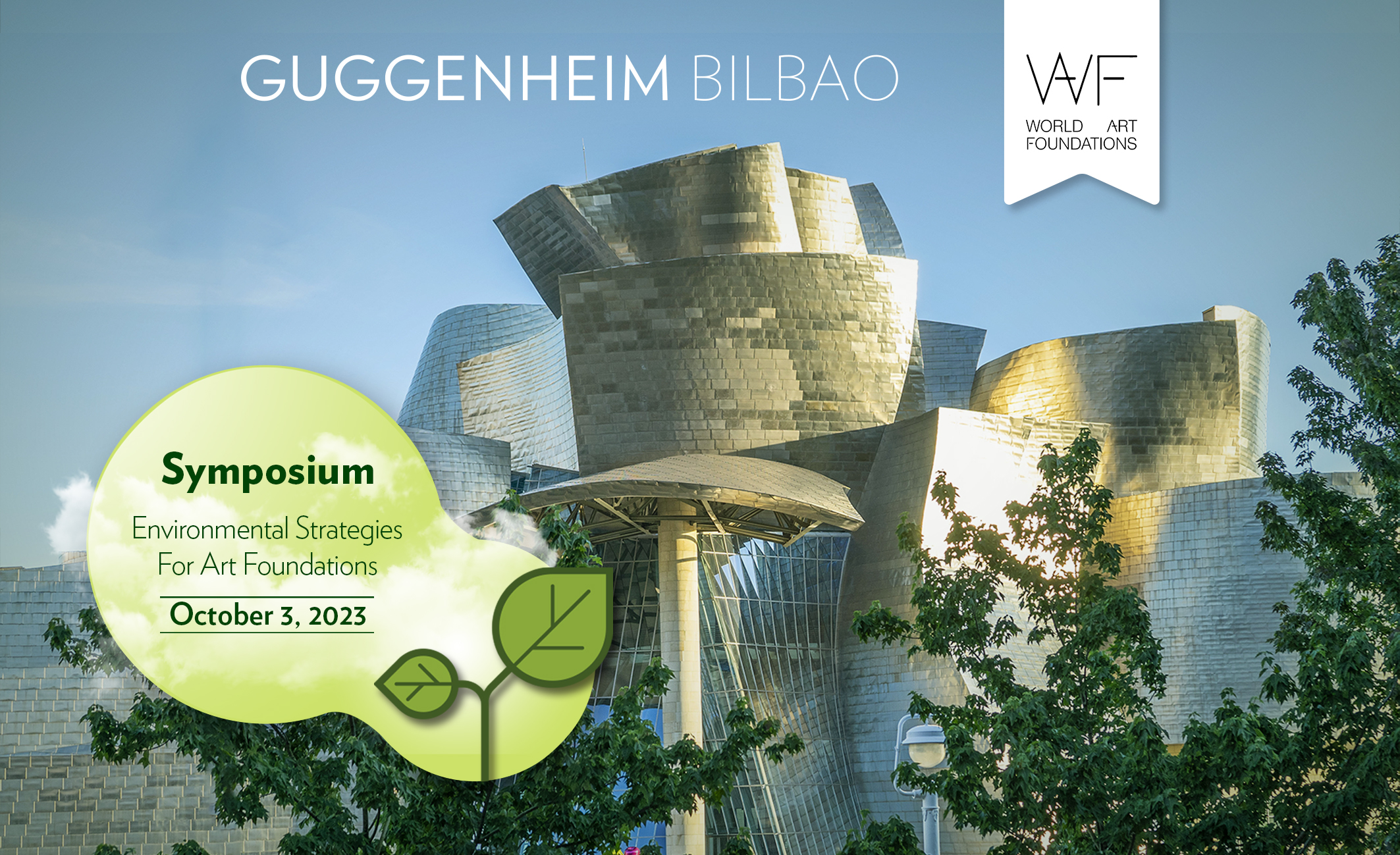
Held in October 2023, the symposium organised by World Art Foundations (WAF) in collaboration with the Guggenheim Museum Bilbao brought together leaders from museums and art foundations to present their environmental sustainability strategies, share best practices and offer participants insights and solutions to help them begin their own sustainability journeys.
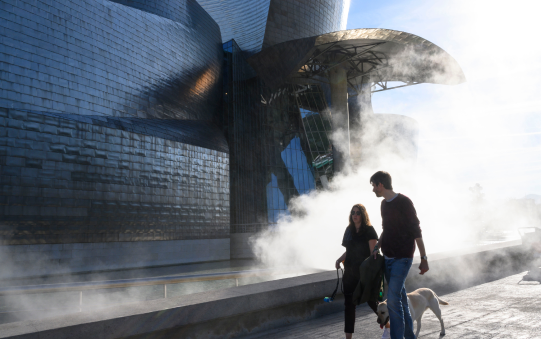
In October 2022, the event brought together some of the most prominent artists, scientists and technologists working globally on climate change and the challenges it presents.
